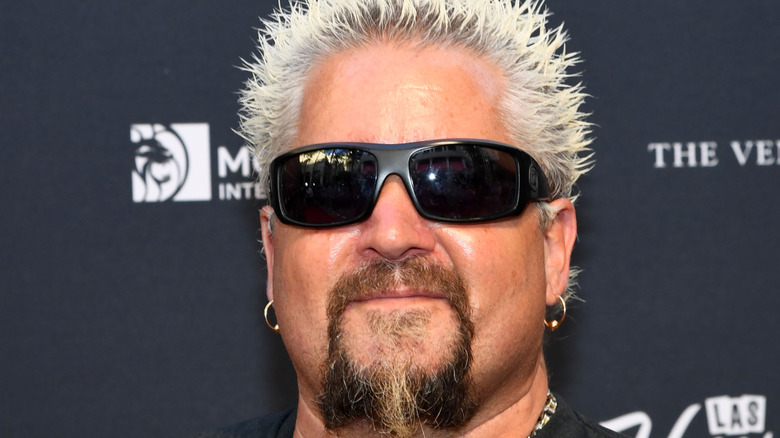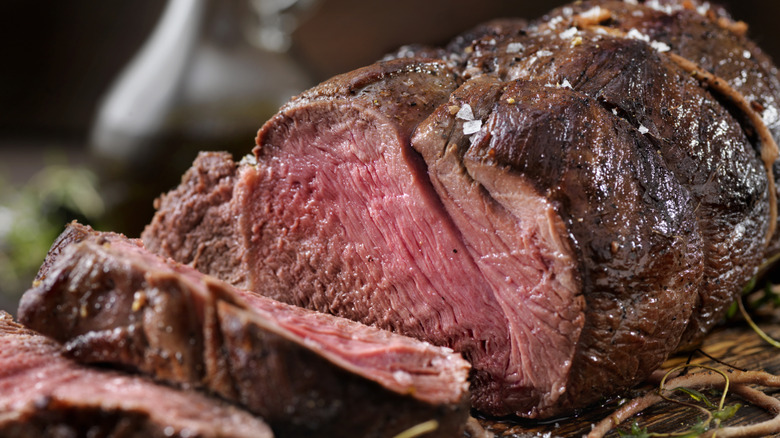This Is Where Guy Fieri Buys Prime Rib
Beloved for its juicy tenderness and depth of flavor, prime rib is often a favorite choice for holiday celebrations and fancy get-togethers. Quality is top priority when it comes to this cut (because it will probably cost you a pretty penny anyway), so you want to be absolutely sure that what you're getting is the good stuff. According to Guy Fieri, for the best prime rib, skip the grocery store and go right to the butcher.
As he told Food Network in true Fieri fashion, "One of the things that you need to have in your life, you need to have a really good dentist, you need to have a really good attorney, a really good bail bondsman, and a really great butcher." That skilled butcher, he advised, will be invaluable when you're in the mood to whip out your world-class prime rib recipe.
Fieri recommends calling your local butcher a few weeks before you want the prime rib in order for them to start the aging process. Drying the beef for several weeks before cooking allows time for the connective tissue within the meat to start to break down, making for more tender beef. The meaty flavor also becomes more concentrated as moisture evaporates from the tissue and natural bacterial growth develops, bringing a deliciously complex element to the overall taste. While you can dry-age meat at home with loads of salt and patience, as Fieri points out, having a dedicated fridge for the task makes it far easier for a butcher to pull it off.
Prime rib doesn't mean prime grade
Cut from the primal rib section of the cow (think ribs six through 12), prime rib is typically so succulent because it comes from a part of the cow that is largely unworked. The USDA's beef grade — evaluated based on fat marbling and the animal's age — is an important yet separate factor. For the most marbling, juiciness, and flavor, choose prime grade beef over choice or select. In the case of prime rib, this can be misleading, as "prime" is in the name of the cut of beef. Not all prime rib is prime grade. This is why you shouldn't order prime rib at a restaurant without first asking about the grade of beef, and you should definitely make the request to your butcher if you want the top-quality cut.
Whether you're drying the meat yourself or having a butcher do it, you'll want to calculate how much prime rib you need to feed your party ahead of time. It's typically recommended to offer 1 pound of meat per dinner guest (this option often leaves you with some leftovers for a killer French dip). However, the meat will lose some poundage in water weight through the drying process. While the butcher will know to take shrinkage into consideration when preparing your cut, this is something you'll have to think about ahead of time if you're taking on the task of drying your beef at home.

